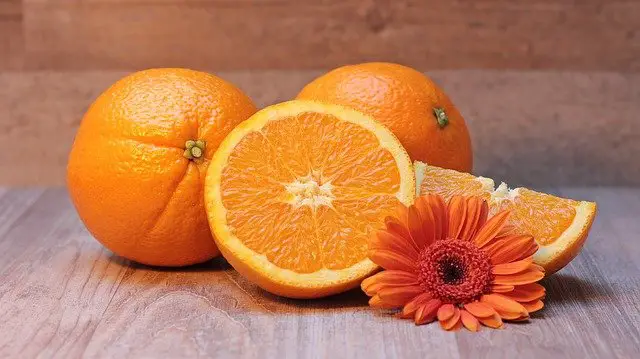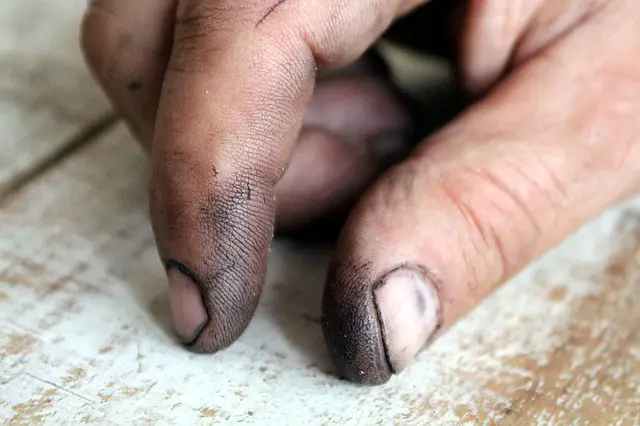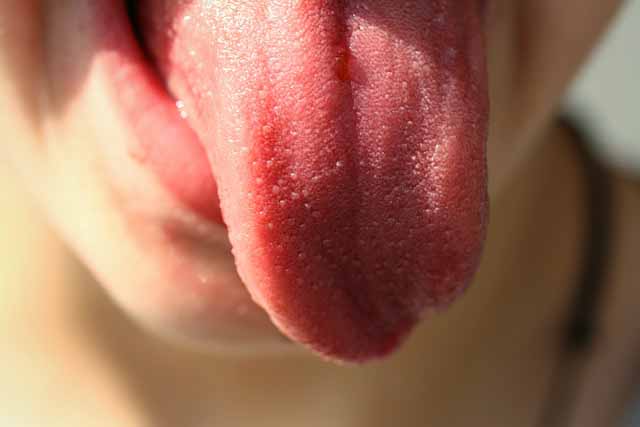Funny Spanish Names That Will Make You Laugh
Every language has words and phrases which sound pretty weird to non-native speakers. And of course, the Spanish language isn't any exception to this rule. So today we will look at some pretty funny Spanish phrases. Granted it is sometimes hard to grasp the real meaning behind a certain expression, especially when you just started to learn Spanish. But I think these funny phrases make a language unique and add to its texture and richness. So let's dive into the plethora of humorous Spanish phrases and sayings which make us giggle. After all, having a laugh makes us all feel better and life much more enjoyable!
Table of Contents
- Funny Spanish Phrases about Love
- He encontrado mi media naranja
- Echarse al agua
- Echar los perros a alguien
- Ser uña y mugre
- Funny Spanish Phrases about Life
- Tener mala leche
- Mejor malo conocido que bueno por conocer
- Sacar los trapos al sol
- Éramos pocos y parió la abuela
- Botar la casa por la ventana
- A buenas horas, mangas verdes
- Ser pan comido
- Dormir la mona
- Dar la vuelta a la tortilla
- Funny Spanish Phrases about People
- Estar como un tren
- Hasta en la sopa
- Creerse la última coca-cola del desierto
- Ponte las pilas
- Hablando del rey de roma
- El que nada debe, nada teme
- Meter la pata
- Estar feliz como una lombriz
- Más sabe el diablo por viejo que por sabio
- Estar pelado
- Cría fama y échate a dormir
- No ver tres en un burro
- Eres la leche
- Estar de mala leche
- Estar en la edad del pavo
- No tener pelos en la lengua
- Funny Spanish Phrases with Animals
- Me pica el bagre
- Es el mismo perro con diferente collar
- Estar todo el pescado vendido
- Aunque la mona se vista de seda, mona se queda
- Estar como una cabra
- Burro hablando de orejas
Funny Spanish Phrases about Love

He encontrado mi media naranja
Literal translation: "I found my half orange."
In English we speak of our "better half". The Spanish take it a step further and refer to their significant other as "half an orange" (media naranja).
Echarse al agua
Literal translation: To get into the water
Once you have found your other half orange, you might decide to make things permanent i.e. to marry that special someone. Or as they put it in the Spanish speaking world: echarse al agua.
Echar los perros a alguien
Literal translation: To throw the dogs at someone
To "throw the dogs at someone" means to flirt heavily, seduce someone or to declare your love. It can also be to persuade or start a sexual relationship.

Image by Ulrike Mai from Pixabay
Ser uña y mugre
Literal translation: Being nail and dirt
Maybe not your idea of a romantic expression, but when two people always stick together and you hardly see one of them alone, then the Spanish call that "ser uña y mugre".
Funny Spanish Phrases about Life
Tener mala leche
Literal translation: Having bad milk
For centuries, milk has been an important part of many people's diet, especially in rural areas. So, if your milk turned sour that was a rather unlucky event. And thats exactly what this phrase means. "tener mala leche" means you have bad luck.
Mejor malo conocido que bueno por conocer
Literal translation: Better the devil you know than the good you don't know
This phrase means it's better to deal with someone (or something) "evil" you are familiar with than to try your luck with someone new you don't know at all. Someone new might be better, but you can't be sure about it. So it's better to stick to the one you know how to handle.
Sacar los trapos al sol

Literal translation: To take the rags out into the sun
This phrase means to blame someone for their faults or shortcomings in front of others. It's the Spanish equivalent of "airing one's dirty laundry in public."
Éramos pocos y parió la abuela
Literal translation: There were only a few of us and then grandma gave birth
It's a pretty weird expression used in situations where something bad happens and things go from bad to worse unexpectedly. In another sense, it is also used to indicate when there are many people in a place and more arrive unexpectedly.
Botar la casa por la ventana
Literal translation: To throw the house out of the window
The origin of this phrase, which translates into spending large amounts of money or effort on something, derives from the 18th century when the then King of Spain, Charles III, established the lottery in Spain. The few lucky winners were able to buy all new luxury items, so they could afford to metaphorically even throw their old house of the window (botar la casa for la ventana).
A buenas horas, mangas verdes
Literal translation: At good hours, green sleeves
Another rather peculiar expression meaning "being too late". It goes back to the middle ages when the "Santa Hermandad" was formed in Castile, making it one of the first organized police forces in Europe. Its members wore a uniform with green sleeves, so everybody could see immediately they were responsible to protect the crown and keep peace and order.
Of course they usually only showed up after a crime had happened, so they were seen by many as constantly being late. But despite this mockery by the public they proved to be very effective in their fight against crime.
Ser pan comido
Literal translation: to be eaten bread
This humorous expression means something is easy to do, literally meaning a piece of cake.
Dormir la mona
Literal translation: to sleep the female monkey
After a long night of partying and too many boozy drinks, you will need to sleep the female monkey. Or in other words, to sober up and sleep it off.
Dar la vuelta a la tortilla
Literal translation: to turn the omelette around
When Spanish native speakers use this phrase, they mean someone turns the tables.
Funny Spanish Phrases about People
Estar como un tren
Literal translation: to be like a train
Being compared to a train might not sound like a compliment to you. Well, with the possible exception of American football players. For them the image of a train steaming ahead would be rather flattering, I assume.
But in Spanish "being like a train" is an honest compliment to everyone. The phrase originates in the 18th century when the industrial revolution took off and powerful new machines like trains where considered spectacular and marvelous inventions.
Hasta en la sopa
Literal translation: to be in the soup
When you meet someone at several different locations during the day, you see him so often, he literally seems to show up even in your soup!
Creerse la última coca-cola del desierto
Literal translation: to think you're the last Coca-Cola in the desert
It basically means that you think you are someone very special. In many countries "Coca-Cola" is used to describe all kinds of soft drinks, rather than the specific brand. So, if you find yourself in a hot and dry environment like a desert, wouldn't be an ice cold drink something wonderful? And that's just like some people see themselves. So this phrase describes someone who is arrogant or cocky.
Ponte las pilas
Literal meaning: put in the batteries
The Spanish use this phrase when someone looks sleepy, moves slowly or is daydreaming. It's the equivalent of the English "Look alive!" or "Look sharp!" Think of the famous toy bunny in the commercials of a battery manufacturer.
Hablando del rey de roma
Literal translation: Speaking of the king of Rome
It means someone you've just been talking about suddenly shows up. It's the Spanish equivalent of "speak of the devil!"
El que nada debe, nada teme
Literal translation: He who owes nothing, fears nothing
This funny Spanish phrase refers to someone who has a clear conscience. When someone accuses you of something bad you are not responsible for, you might use this phrase.
Meter la pata
Literal translation: Putting your leg into it
To "put your leg into it" means to say or do something silly. The Spanish version of "to put one's foot in it."
Estar feliz como una lombriz
Literal translation: To be happy as a worm
We don't know whether worms are particularly happy chaps, but this term derives its comedy simply from the underlying rhyme. Similar to "snug like a bug in a rug."
Más sabe el diablo por viejo que por sabio
Literal translation: The devil knows more by being old than by being wise
Although this expression mentions the devil, it's actually means someone who knows how to handle things in the best possible way because he has a lot of experience in this field.
Estar pelado
Literal translation: being peeled
When you have no money, you are bare, skint or "peeled" as the Spanish say.
Cría fama y échate a dormir
Literal translation: Raise your fame and go to sleep
This term means once you have built a certain reputation for yourself, it will last for a long time.
No ver tres en un burro
Literal translation: not seeing three on a donkey
Used when you accuse someone of missing something important or obvious. In English you might say, "as blind as a bat."
Eres la leche
Literal translation: You are the milk
When your Spanish friends tell you, "you are the milk," they mean "you are incredible / unbelievable." Which – as in English – can either be in a positive sense:
"¿Ya has lavado los platos? ¡Eres la leche!" – "You already did the washing up? You're unbelievable!"
Or it can be quite the opposite:
"¿Olvidaste hacer la única cosa que te pedí? ¡Eres la leche!" – "You forgot to do the one thing I asked you for? You are incredible!"
Estar de mala leche
Literal meaning: to be of bad milk
And another phrase with milk. To be of bad milk means, someone is cranky or in a bad mood. When milk goes off, it turns sour and bitter. So it is easy to see how this phrase evolved.
Estar en la edad del pavo
Literal translation: to be in the age of the turkey
Another humorous Spanish phrase which means: to be a teenager or adolescent. How the connection of teenagers and turkeys came along, isn't quite clear. Some say it's because of the odd movements a turkey makes. Jus a teenagers who are often uncomfortable with their bodies at that age and seem to be a bit unbalanced. Others say the reason is the red color of the head, as teenagers also often blush and turn red in the face. I see both explanations as possible, so maybe it's the combination of those two.
No tener pelos en la lengua

Literal translation: not having hair on your tongue
When a Spanish native speaker doesn't have hair on his tongue, it means he or she is quite blunt or doesn't mince his words.
"¿Qué te parece mi nuevo vestido?" — "How do you like my new dress?"
"Bueno, yo no tengo pelos en la lengua. ¡Creo que el color no te queda bien!" — "Well, I will be blunt. I think the color doesn't suit you!"
Funny Spanish Phrases with Animals
Me pica el bagre
Literal translation: The catfish is biting me
When you're really hungry it can feel as if your stomach is stinging. The Spanish have a rather picturesque description for this, saying the catfish is nibbling at your tummy. In English you might say you are "as hungry as a horse" or you "feel peckish" (British English). Either way, it is time to get that paella onto the table!
Es el mismo perro con diferente collar

Literal translation: It's the same dog with a different collar.
It's a rather pessimistic phrase meaning that things don't change for the better even when the people in charge are different. So you can hear this phrase often when people are referring to elections. The people at the top might change, but the circumstances stay the same.
Estar todo el pescado vendido
Literal translation: All the fish has been sold.
This funny Spanish phrase means that something has happened and it's too late now to change it. Like when you go to the market to buy some fish, but you're too late and it's already sold out.
Aunque la mona se vista de seda, mona se queda
Literal translation: Even if a monkey wears silk, s/he is still a monkey
It's a bit like saying "You can take a man out of the ghetto but you can't take the ghetto out of the man." It means our social background shows through even when we try to hide it by dressing nicely and wearing expensive outfits.
Estar como una cabra
Literal translation: to be like a goat
Goats have a mind of their own and their behavior isn't always predicable. So, if you are like a goat, it means you are a bit crazy.
Burro hablando de orejas
Literal translation: the donkey talking about ears
To accuse someone of something you are guilty of yourself. The English equivalent would be: The pot calling the kettle black.
So, this was the list of our favorite funny Spanish phrases. Did we miss any of your favorites? Let us know and we'll gladly add it to the list!
Source: https://languageholic.com/funny-spanish-phrases/
0 Response to "Funny Spanish Names That Will Make You Laugh"
Post a Comment